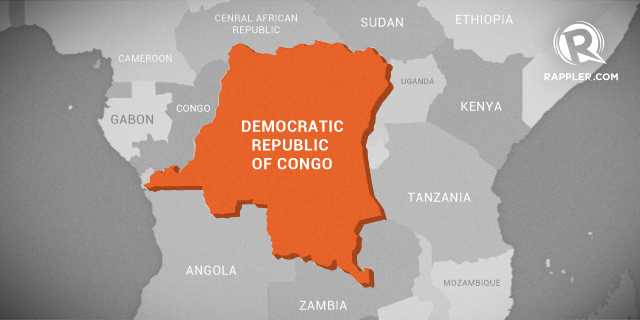SUMMARY
This is AI generated summarization, which may have errors. For context, always refer to the full article.

KINSHASA, DR Congo – Government troops in the Democratic Republic of Congo said they had gained more ground against M23 rebels Monday, October 28, as the head of the UN mission in the country described the movement as finished.
“Practically all M23 positions were abandoned yesterday, except for a small triangle at the Rwandan border,” Martin Kobler told the UN Security Council by video-link, according to diplomats.
He said that the M23 had abandoned a key position on Mount Hehu near the Rwandan border, reportedly adding: “It is practically the military end of the M23.”
A Tanzanian UN soldier was killed in the fighting on Sunday, October 27, but the rebels were rolled back and local civilians were overjoyed, Kobler said, according to officials present at the closed door meeting.
Troops seized back control of a major military base at Rumanagabo, which lies about 40 kilometers (25 miles) north of Goma, the strategic capital of embattled North Kivu province, Lieutenant-Colonel Olivier Hamuli told Agence France-Presse.
“We fought, but not for very long – the enemy is demoralized by the strength of (our) firepower,” Hamuli said on the fourth day of an offensive against the M23, following the suspension of peace talks in Uganda.
Troops recaptured two other towns, Kiwanja and Rutshuru, at the weekend and heavy fighting was reported at Kibumba, around 25 km from Goma, where soldiers cleaning up the area made the grim discovery of three mass graves.
One witness who did not give his name reported seeing “horrible things” at the site of the graves.
“I saw three or four child skulls, underwear and women’s clothing. There were insects in some places, which meant there were not just bones there.
“Further on there was a large ravine where people said quite a lot of bodies had been thrown but I wasn’t able to check,” the witness said.
A special commission has been tasked with “identifying the graves” and “determining their scale as well as those responsible for these serious human rights violations”, Defence Minister Alexandre Luba Ntambo said.
Ntambo said there was “no limit” to army action to drive out rebels.
M23 is “a rebel movement, a negative force… I don’t see how someone can stand up and tell us when to stop”, he said.
Fears of regional spillover
The renewed fighting – the heaviest since August – has sparked concern from the West, prompting calls for restraint.
“I hope that President (Joseph) Kabila and others in the DRC see this chain of events that have occurred as something that enhances their credibility as a military, but that there are enormous risks in simply moving forward, believing that a military solution is the full answer,” said Russell Feingold, US Special Envoy for the Great Lakes and the Democratic Republic of the Congo.
“It risks bringing in other forces into this matter that could lead to a cross-national war,” said Feingold, who described the unrest as a “tinderbox”.
Rwanda, Uganda and Burundi, part of the Great Lakes region, are all worried by the fighting.
The current battle zone in their volatile neighbor is the Rutshuru region of North Kivu, a province rich in minerals and agricultural produce that has been fought over for more than two decades by a range of armed groups.
Troops from the UN peacekeeping mission MONUSCO have a mandate to conduct operations against rebels in the region of Goma, capital of the restive province of North Kivu.
Rwanda’s UN ambassador, Eugene Richard Gasana, alleged that 21 shells had fallen on the Rwandan side of the border during the fighting and that two civilians had been killed and 10 wounded.
He said that 15 wounded M23 fighters had crossed into Rwanda and been handed over to the Red Cross and that 1,000 refugees had fled the fighting.
“Rwanda will be forced to take action if Rwandan lives continue to be jeopardized,” he warned, adding that his country would “not tolerate for much longer violations of its territorial integrity,” according to diplomats who were at the briefing.
Few wider casualty figures were available and the colonel Hamuli could not say how many rebels had surrendered in recent days.
The UN, the US and the European Union have called on the Kinshasa government and the M23 to resume peace negotiations, but Kabila’s regime has repeatedly made clear it is uninterested in resuming talks.
The mainly Tutsi M23 movement emerged in April 2012 with a mutiny by former rebels who had been taken into the army under a 2009 deal.
Rebels accuse Kinshasa of failing to keep the terms of that deal, then on-off talks in the Ugandan capital Kampala stalled on the government’s refusal to give an amnesty to about 80 rebel leaders.
Foreign military sources on the ground estimate the fighters now now number no more than 1,000. – Rappler.com
Add a comment
How does this make you feel?
There are no comments yet. Add your comment to start the conversation.